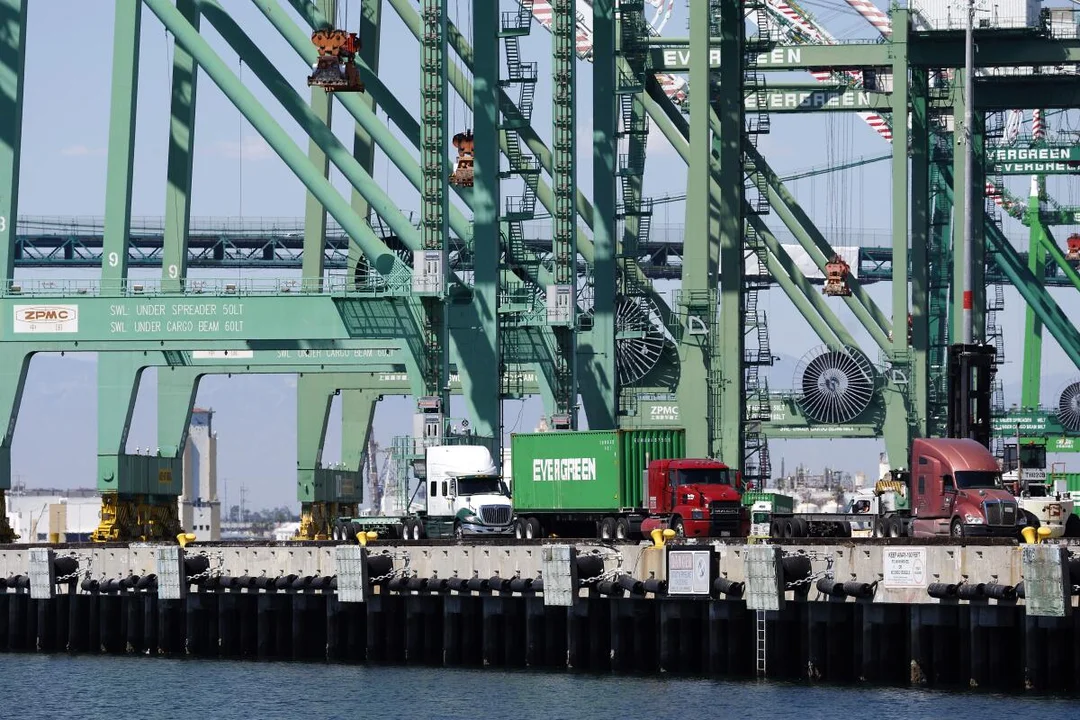
Are Trump’s Tariffs Legally Vulnerable? A States’ Rebellion Unfolds
In a high-stakes clash between state governments and federal authority, several U.S. states are challenging President Trump's sweeping tariffs in court, raising questions about executive power and economic stability. These legal battles highlight the potential vulnerability of tariffs imposed under emergency declarations, with significant implications for American businesses and consumers alike.
The controversy began when California Attorney General Rob Bonta announced plans to seek a preliminary injunction against Trump's tariff policies, arguing that they exceed presidential authority under the International Emergency Economic Powers Act (IEEPA). Filed in the Northern District of California, the suit claims the tariffs on global imports lack legal grounding, especially those targeting trading partners like China, Mexico, and Canada. A hearing is slated for next week, with a decision possibly arriving by mid-June. Governor Gavin Newsom echoed the sentiment, stating, 'President Trump has overstepped his authority, and now families, businesses, and our ports are literally paying the price.' This reflects California's outsized economic exposure, where uncertainty is 'bad for business, bad for the economy, and bad for California,' as Bonta put it.
Meanwhile, the first federal court hearing on these tariffs, held in the U.S. Court of International Trade, did not favor the Trump administration. In the case of V.O.S. Selections v. Trump, a three-judge panel expressed skepticism about the administration's argument that judicial review is off-limits. Judges, including Reagan appointee Jane Restani and Obama appointee Gary Katzmann, grilled lawyers on the definition of an 'unusual and extraordinary threat' under IEEPA. Restani notably rebuked the idea that the president could declare anything a national emergency, even humorously referencing a 'shortage of peanut butter.' The hearing drew parallels to a 1975 precedent upholding tariffs by President Nixon, but judges pointed out key differences, such as the temporary nature of Nixon's measures amid a 'Nixon shock' in monetary policy, versus Trump's ongoing response to decades-old trade deficits.
Oregon Attorney General Dan Rayfield, leading a 12-state coalition in a separate suit, emphasized the tariffs' unprecedented misuse of emergency powers. In an interview, Rayfield noted the real-world impacts, like Canadian retailers pulling Oregon products from shelves, destroying long-standing trade relationships. He argued there's 'no rational basis' behind the policies, which could impose a $3,800 annual tax on average American households. Labor unions, including Oregon's AFL-CIO, have backed the lawsuits, viewing tariffs as a valid tool only when properly legislated. Rayfield's case, expected to be heard soon, underscores a broader resistance from Democratic attorneys general, who are coordinating to protect working families from what they see as unconstitutional actions.
This wave of litigation reveals deep divisions over executive authority and economic policy. While Trump's tariffs aim to address trade imbalances, critics argue they bypass congressional oversight, potentially violating nondelegation doctrines that limit unchecked presidential power. As states like Oregon and California press forward, the outcomes could reshape U.S. trade relations and set precedents for future emergencies.
In summary, these court battles not only challenge the legality of Trump's tariffs but also highlight the risks to global markets and everyday Americans. Will the judiciary rein in executive overreach, or will tariffs prevail? As this drama unfolds, readers are encouraged to share their thoughts: How might these decisions impact your community? Leave a comment below and help shape the conversation on this critical issue.